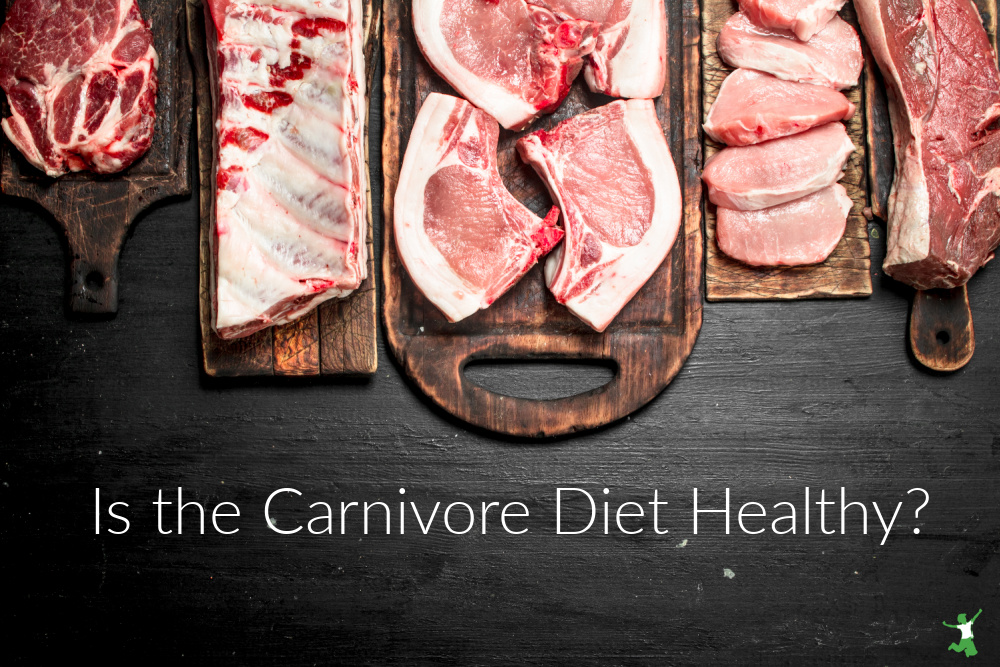The Carnivore Diet: Is It a Miracle Cure or a Dangerous Fad? Experts Weigh In!
The carnivore diet a regimen that involves consuming exclusively animal products has been gaining traction and sparking debates. With claims of significant health benefits it's essential to delve into the details. This article will explore the carnivore diet benefits discuss if the carnivore diet is healthy and examine its use among athletes and for gut health.
What Is The Carnivore Diet?
The carnivore diet is a zero-carb diet that involves eating only animal products – meat fish eggs and certain dairy products. It excludes all other food groups including fruits vegetables grains nuts and seeds. Proponents argue that this diet is a return to our ancestral eating habits.
Carnivore Diet Benefits
- Weight Loss: Many report rapid weight loss. The high protein and fat content can increase satiety reducing overall calorie intake.
- Simplified Dieting: With fewer food choices meal planning and preparation can be more straightforward.
- Potential Blood Sugar Regulation: The absence of carbohydrates can stabilize blood sugar levels which is beneficial for some people with diabetes.
Is The Carnivore Diet Healthy?
The carnivore diet's healthiness is a topic of much debate. While some individuals report improved health markers the diet lacks in essential nutrients found in plants. The high intake of red meat is linked to increased risks of heart disease and certain cancers. Moreover the absence of fiber can impact gut health negatively.
- Carnivore Diet for Athletes
For athletes the diet's high protein content can be beneficial for muscle repair and growth. However the lack of carbohydrates can impair high-intensity performance since carbs are a primary energy source during exercise. Each athlete's response to the diet can vary widely.
- Carnivore Diet for Gut Health
The impact of the carnivore diet on gut health is complex. Some report improvements in digestive symptoms potentially due to the elimination of irritant foods. However long-term effects on gut microbiota due to the lack of fiber are a concern as fiber is crucial for a healthy gut.
- What Experts Say?
Many nutritionists and healthcare professionals express concern over the carnivore diet's restrictive nature. The lack of variety can lead to nutrient deficiencies and the high saturated fat intake may increase heart disease risk. It's also not sustainable or environmentally friendly in the long term.
- Personal Testimonies
Numerous anecdotal accounts praise the diet for alleviating various health issues from skin conditions to joint pain. However these stories should be approached with caution as they are not backed by scientific research.
- Scientific Research
There is a significant lack of rigorous scientific research on the carnivore diet. Most evidence is anecdotal or based on theories rather than concrete scientific findings.
What Facts About The Carnivore Diet You Should Be Aware?
The carnivore diet a regimen focusing solely on animal products has been a topic of interest and controversy. As of 2024 it's important to be armed with the latest information and understand the facts surrounding this diet. Here's what you should know:
Nutritional Deficiencies:
- Lack of Fiber: The diet provides little to no dietary fiber essential for digestive health.
- Limited Vitamins and Minerals: Excluding plant-based foods results in a deficiency of certain vitamins (like Vitamin C and E) and minerals (such as potassium and magnesium).
Increased Risk of Health Issues:
- Heart Health Concerns: High consumption of red and processed meats is linked to increased risks of heart disease as per studies updated in 2024.
- Potential Increase in Cancer Risk: The World Health Organization has classified processed meats as carcinogenic and red meat as probably carcinogenic to humans.
- Impact on Gut Health: The lack of diversity in the diet can negatively affect the gut microbiome which is crucial for overall health.
Psychological and Social Aspects:
- Restrictive Nature: The diet is extremely restrictive which can lead to social isolation and difficulty in maintaining it in the long term.
- Potential Disordered Eating Patterns: Such an extreme diet may foster unhealthy attitudes towards food and eating.
Environmental Considerations:
- Sustainability Issues: The environmental impact of a meat-heavy diet is significant contributing to higher greenhouse gas emissions and resource usage compared to plant-based diets.
Short-Term vs. Long-Term Effects:
- Initial Benefits: Some people report short-term benefits like weight loss and reduced inflammation.
- Long-Term Risks: The long-term effects of such a diet are still under research but current data suggests potential negative impacts on health over time.
Individual Responses and Genetic Factors:
- Varied Individual Responses: People's responses to the carnivore diet can vary widely influenced by genetics lifestyle and health status.
- Importance of Personalized Nutrition: The concept of personalized nutrition which tailors dietary recommendations to individual genetic environmental and lifestyle factors is becoming increasingly recognized.
Lack of Long-Term Research:
- Need for More Studies: As of 2024 there is still a significant lack of long-term peer-reviewed research on the impacts of the carnivore diet.
Alternative Dietary Approaches:
- Balanced Diets: Most nutrition experts continue to recommend balanced diets that include a variety of food groups emphasizing fruits vegetables whole grains lean proteins and healthy fats.
Conclusion
The carnivore diet while intriguing raises several red flags. Its benefits are often outweighed by potential health risks and lack of scientific backing. Before considering such a drastic dietary change it's crucial to consult with healthcare professionals and consider individual health needs and goals. Ultimately a balanced diet with a variety of nutrients is generally the safest approach to health and well-being.








